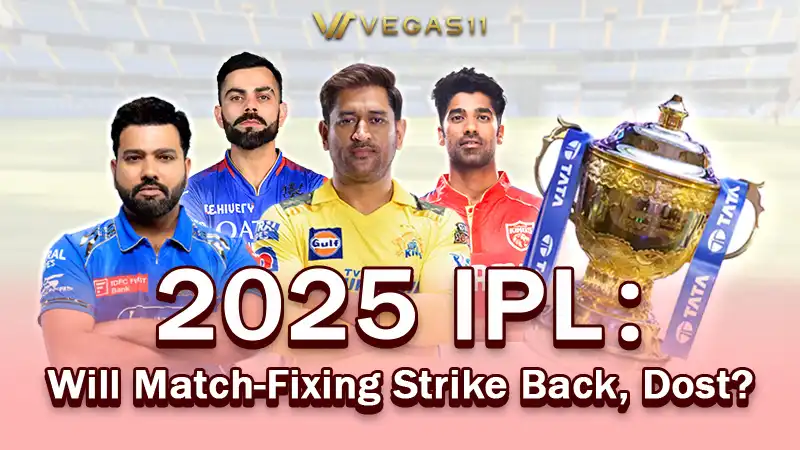
2025 IPL: Will Match-Fixing Strike Back, Dost?
The ugliest match-fixing scandal in IPL in 2013 led to several players being banned for life by the BCCI, and both Rajasthan Royals and Chennai Super Kings were also handed a two-year suspension by the BCCI.
As we look ahead to 2025, could the IPL face another spot-fixing scandal or a betting controversy?
2013 Match-Fixing in IPL
When we talk about the 2013 match-fixing scandal in the IPL, it's a piece of history that many IPL fans would rather forget. This incident caused a lot of trauma for fans, and those who lost large amounts of money betting on cricket were even more furious.
However, we must stay rational and continue to review the situation, rather than simply forget about it. So, what exactly happened?
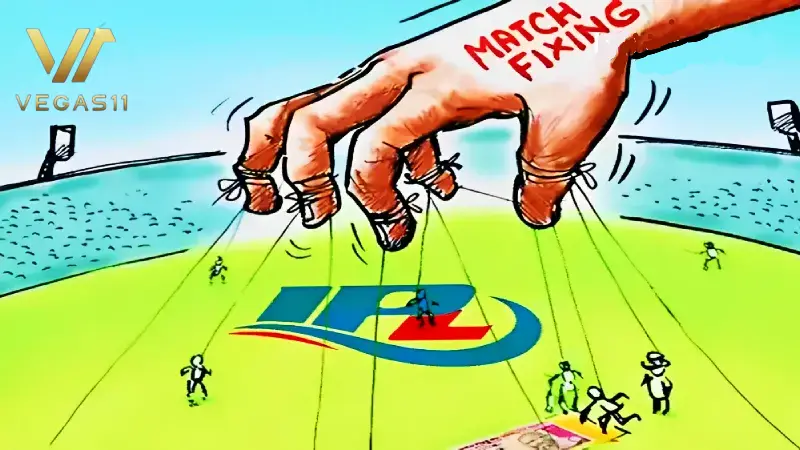
In 2013, several players from Rajasthan Royals and Chennai Super Kings were involved in a match-fixing scandal, where they manipulated the game by signaling to bookmakers through delayed bowling or pulling up their sleeves, engaging in spot-fixing activities to influence the outcome.
This was ultimately exposed to the public through monitoring and evidence collection by the Anti-Corruption Unit (ACU).
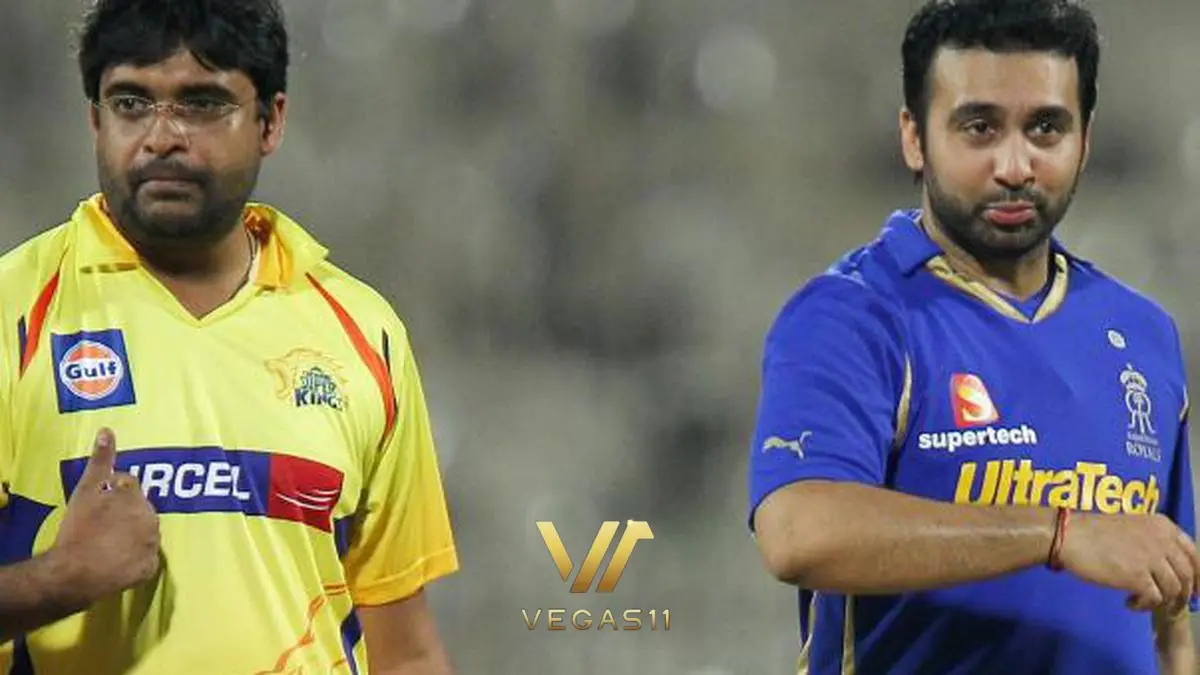
2023 IPL Spot-Fixing Scandal Ban List:
- S. Sreesanth (Rajasthan Royals)
- Ajit Chandila (Rajasthan Royals)
- Ankeet Chavan (Rajasthan Royals)
- Gurunath Meiyappan (CSK owner N. Srinivasan’s son-in-law, known as the "gambling mastermind")
- Raj Kundra (Co-owner of Rajasthan Royals, banned for life by the BCCI for illegal betting)
- Rajasthan Royals Team (Suspended for two years in 2016-2017)
- Chennai Super Kings Team (Suspended for two years in 2016-2017)
This incident not only resulted in several players being permanently banned from participating in the IPL, but also led to the two-year suspensions of both the Rajasthan Royals and Chennai Super Kings in 2016-2017, severely damaging the credibility of the IPL during that time.
The scandal was driven by those who manipulated the system for profit, including both the betting masterminds and the complicit players and team officials.
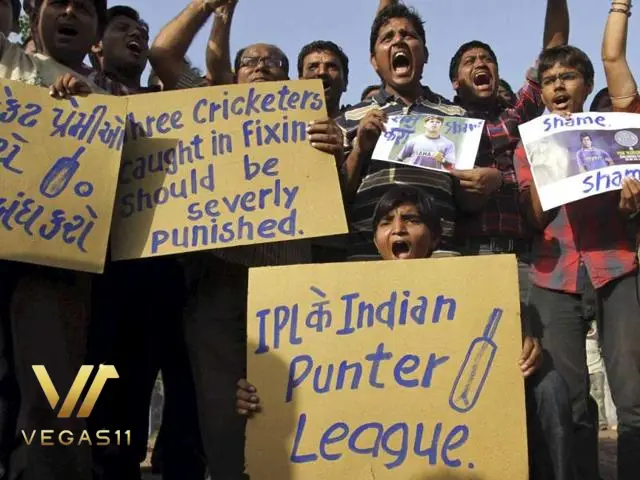
Popular Articles:6 Worst IPL Decisions Where Umpires Turned a Blind Eye
What is Spot-Fixing Scandal ?
A Spot-Fixing Scandal is a form of sports corruption where specific events within a match—such as bowling a no-ball, conceding a certain number of runs, or deliberately bowling a dot ball—are manipulated for betting purposes.
Unlike other match-fixing incidents, the impact of a spot-fixing scandal doesn't necessarily affect the overall outcome of the game. Instead, it focuses on smaller events that are manipulated through higher betting odds to achieve significant profits.
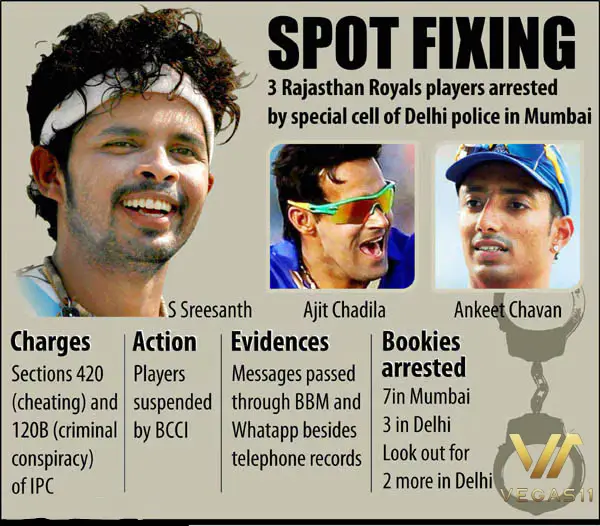
How Spot-Fixing Works?
STEP 1: A betting group or criminal organization approaches players through money or threats.
STEP 2: A player (or a group of players) agrees to manipulate certain events in the game.
STEP 3: The player uses gestures, towel movements, or other signals during the match to indicate readiness to act.
STEP 4: A large sum of money is wagered on these specific outcomes.
STEP 5: The player intentionally underperforms or follows the agreed-upon instructions to manipulate the game.
Common Spot-Fixing Betting Options in IPL
- No-Ball – Bet on a whether particular bowler will bowl a no-ball at a specific time.
- Wide Ball – Bet on whether a particular bowler will bowl a wide ball at a specific time.
- First Over Runs – Set a specific range, such as 6-10 runs, and allow players to bet on whether the score will fall within that range.
- Fall of Wicket – Bet on whether a particular batsman will be out at a specific time.
- Dot Ball – Bet on whether a particular ball will be a dot ball.
- Mode of Dismissal – Bet on how a particular batsman will be dismissed (e.g., LBW, Bowled, Caught).
Popular Articles:What is Fancy Bet in Cricket? Rules, Types, & Tips
IPL Betting Controversy
The 2013 IPL Betting Controversy allegedly involved multiple betting and criminal syndicates, most notably India’s infamous underworld don Dawood Ibrahim, along with the two founders of Mahadev Book—Saurabh Chandrakar and Ravi Uppal—as well as several other criminal groups.
Dawood Ibrahim
Dawood Ibrahim is a name widely known across India and is considered one of the world's top ten most wanted fugitives.
He founded the notorious D-Company, which is involved in smuggling, drug trafficking, and terrorism to generate massive profits. Naturally, illegal betting is also part of his empire. Through intimidation and bribery of players, he became one of the key masterminds behind the IPL Betting Controversy.
At present, Dawood Ibrahim is reportedly hiding in Pakistan while continuing to expand the operations of D-Company.

Mahadev Book
Mahadev Book was founded by Saurabh Chandrakar and Ravi Uppal, and is considered one of the largest betting syndicates in India.
Many speculate that Mahadev Book may have also played a major role in the IPL Betting Controversy. It's believed that Mahadev Book has direct connections with Dawood Ibrahim, and together they reportedly operate numerous shell companies for money laundering purposes.
Mahadev Book also runs more than ten betting websites, including Lotus 365 and ReddyAnna.
The case is still under active investigation and may involve a large number of government officials, celebrities, and other high-profile individuals.
Read More:Lotus365 Review: Is the Withdrawal Scam Real?

Will Match-Fixing Strike Back ?
It’s highly unlikely that match-fixing will reappear in the 2025 IPL. The main reason is that the market has grown significantly compared to the past, and player salaries have increased even more.
Currently, each IPL match is worth around $16 million, surpassing even the NBA, FIFA World Cup, and Olympic Games. With such high stakes and lucrative contracts, players have little to no motivation to engage in fixing.
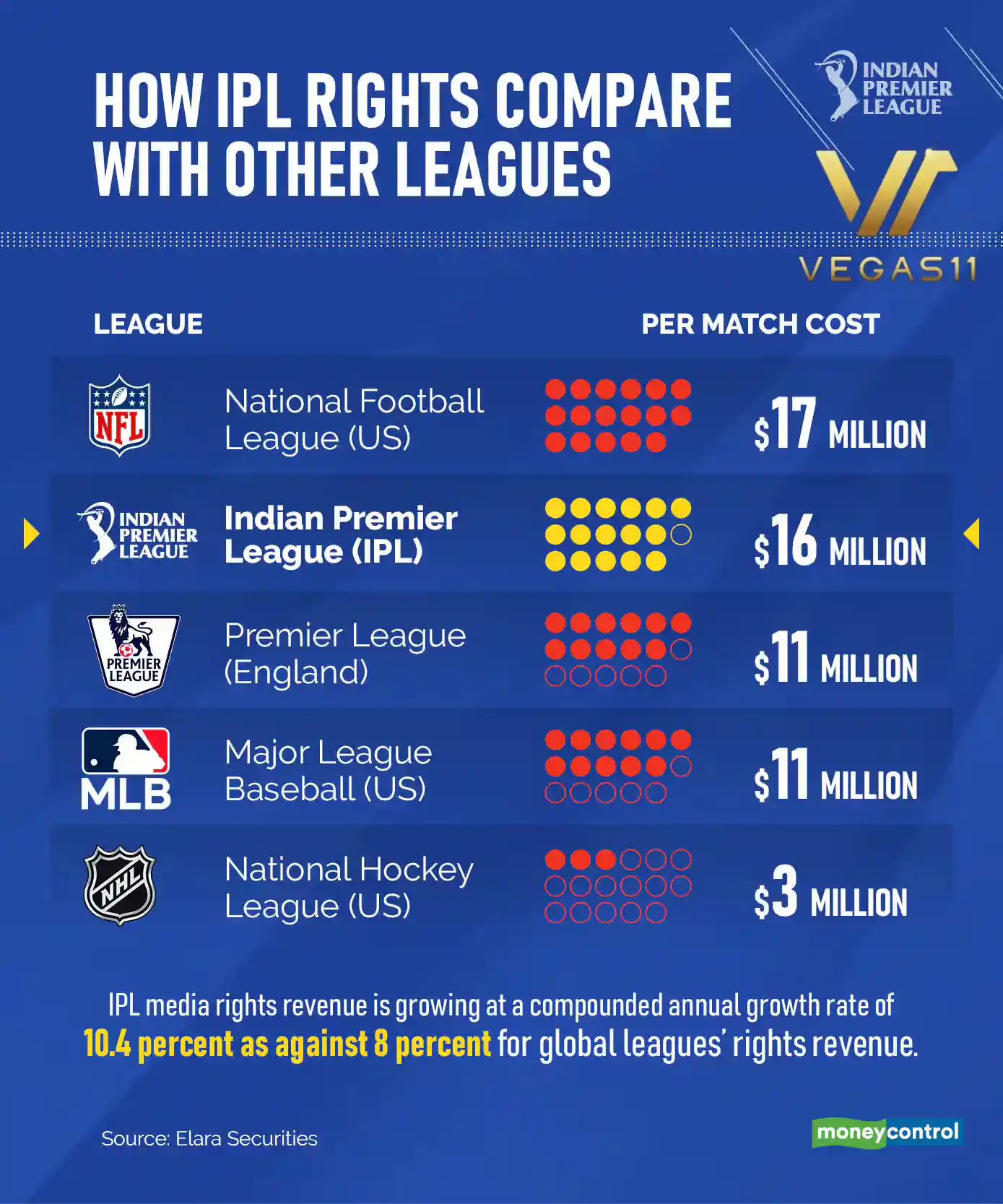
Additionally, the Indian government has implemented strict regulations on financial flows, leading to a decrease in illegal underground betting. Many illegal gambling groups involved in money laundering and match manipulation have already been prosecuted. In other words, betting syndicates are now far less likely to bribe players into spot-fixing scandals.
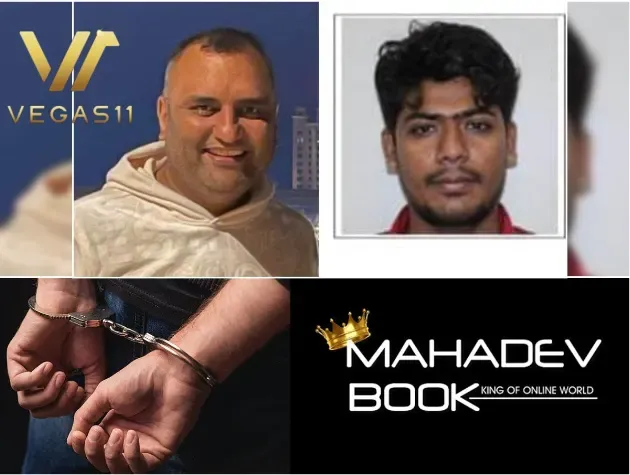
However, many brands under Mahadev Book still operate in India, such as Lotus 365 and ReddyAnna.
Since these platforms have a criminal background, it’s best to avoid them when betting on cricket to prevent losses.
There is still a possibility of spot-fixing scandals, especially in smaller cricket leagues, where regulation and oversight may be weaker.

If you’re looking to enjoy cricket betting, Vegas11 is your best choice.
Founded in India in 2014, Vegas11 has been a long-time sponsor of cricket teams and never engages in spot-fixing by bribing players—you can trust us on that.
Plus, Vegas11 features 7 different sports betting providers, ensuring you get the best cricket odds anywhere online! You can start betting on cricket matches on Vegas11 with as little as ₹50.





